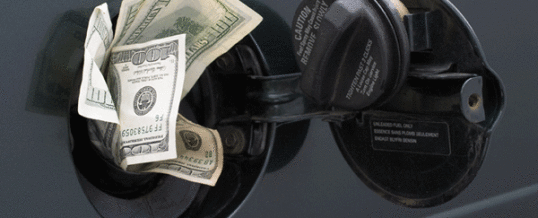
Talking about oil prices is like moving through an avalanche zone. One loud outcry and the whole thing collapses. That’s what has happened with our saber rattling over Iran.
Gasoline prices are rapidly rising attributed to uncertainty about Iran and the loss of Iranian oil supplies to the world market or a blockade of the Strait of Hormuz, through which 17 million barrels of oil, or about 20 percent of total world production, flow each day.
Already, the national average price of regular unleaded gasoline today is $3.76, an 8-cent increase from last week. According to AAA, Florida’s average of $3.79 and Georgia’s average of $3.70 both increased 5 cents from last week. Tennessee’s average price of $3.59 rose 3 cents from last week.
Yes, Iran poses a problem for the U.S. on many fronts, but the U.S. doesn’t import any oil from Iran, and hasn’t for some time. In fact, about half of U.S. petroleum imports come from the Western Hemisphere, not from the Middle East, where we only import about 16 percent of our crude oil and petroleum products.
So why hasn’t President Barack Obama done anything to increase oil supplies to alleviate the pressure of escalading gas prices? Because he is willing to give American consumers a painful lesson on why they need to support his Green energy program.
He has said: “As we recover from this recession, the transition to clean energy has the potential to grow our economy and create millions of jobs — but only if we accelerate that transition. Only if we seize the moment.”
Well, he seized the moment – to generate some good press coverage. He vowed that the goal of his green energy program was to train 124,893 people and place them in new green jobs. But according to Climate Depot, “After 17 months, the results of the green jobs program indicate that only 52,762 were trained, and only 8,035 got green jobs – each job costs tax payers about $62,000…the Administration’s reliance upon green jobs was just another failed progressive dream and pandering to the eco-vote.”
A Washington Post analysis has found that $3.9 billion in federal grants and financing flowed to 21 companies backed by firms with connections to five Obama administration staffers and advisers.
Have we forgotten about the Solyndra debacle when the Obama administration authorized a $535 million loan guarantee only to see the company go belly up?
Or how about Beacon Power Corp., an energy-storage company that filed for bankruptcy after receiving $43 million in backing from the same U.S. program that funded Solyndra?
More recently, Ener1, which makes electric car batteries, filed for bankruptcy protection after receiving a $118 million grant from the federal government in 2009.
Then there’s the president’s goal of putting 1 million advanced vehicles on the road by 2015. How’s that working out? General Motors has instituted a five-week production suspension of the Chevrolet Volt because of oversupply.
The analysts at Edmonds indicated that “The price premium on the Volt just doesn’t make economic sense for the average consumer when there are so many fuel-efficient gasoline cars available, typically for thousands of dollars less.”
So the question becomes: If the American people aren’t ready to dive into Green energy, why isn’t the administration willing to do more to reduce gas prices at the pump for current car owners?
The answer is that Obama and his staff are just plain defiant when it comes to supporting their policies. The American people didn’t want Obamacare but it was shoved down their throats anyway.
The American people aren’t embracing his Green energy program either. But that hasn’t stopped his relentless drumbeat for green energy support.
Don’t get me wrong, an alternative energy program is a good idea because it reduces our reliance on foreign oil, but it has to be combined with a domestic energy program that includes clean coal, domestic drilling, and natural gas.
If the American people aren’t yet ready for his green policy, why does he not listen to them and move on to something they do passionately care about: gas prices.
Rising oil prices put increased pressure on household budgets that have already been stretched to the limit. Any relief they received from the extension of the payroll tax reduction has been more than offset by raising energy costs.
Raising energy costs also impacts the cost to run a business. That reduces job creation when we can least afford it.
Mr. President, for a change, give the American people what they need, not what you want.
MAR



